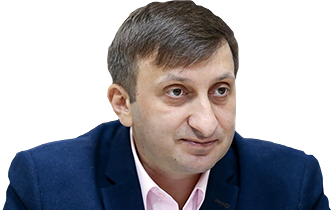According to the "Information Resistance" OSINT group, Russian President Vladimir Putin is drafting a decree allowing holders of the unrecognized "DPR" and "LPR" passports in the occupied areas of eastern Ukraine to obtain a legit Russian passport.
However, it is not entirely clear why Putin had to sign a separate decree since Russia has already passed relevant legislation facilitating the procedure for obtaining Russian citizenship by foreigners, in particular, by Ukrainians who are "victims of the Kyiv junta."
It might as well be that the presidential decree will have the said law as its base. Anyway, the question remains, who needs the president's decree if it was Putin who signed off the law…
The emergence of such decree may pursue several goals.
The first one is that, perhaps, it will give migration services additional powers and levers.
The decree will be another way to reiterate inviolability of Moscow's stance: they don't intend to withdraw from Donbas or reduce their military presence there
Secondly, the decree could be a purely declarative political document emphasizing that Putin is concerned about the fate of the Russian-speakers in eastern Ukraine willing to obtain Russian passports, and that he seeks to protect "Russian citizens living outside Russia." Such an explanation is clearly in line with the ideological discourse the Kremlin applies in relation to Donbas.
The decree will be another way to reiterate inviolability of Moscow's stance: they don't intend to withdraw from Donbas or reduce their military presence there. Accordingly, all of Moscow's claims of any settlement are no more than a game played for the Western public, in particular the United States and the European Union. In fact, Moscow is not going to mitigate or otherwise reconsider its positions on the occupied Ukrainian territories and withdraw troops from Donbas.
In this case, the next step after the distribution of passports to the residents of the occupied areas of Eastern Ukraine will be the actual "creeping integration," as was the case in Abkhazia and South Ossetia – these territories are not recognized by almost anyone except Russia. Besides, in the situation with Donbas, Moscow may not even recognize it, but there will be a gradual establishment of horizontal, closer relations with Russian regions. In particular, it will open up possibilities for the cross-border regime, for the functioning of dual jurisdiction, while Russia will recognize people living in the occupied territories as their own.
However, Donbas residents won't be able to benefit from such developments. At the same time, for Russia, this will significantly simplify the internal procedures, while for the Russian TV audience, the moves will be presented as if the Kremlin is really concerned about the fate of Donbas residents.
Recently, came plenty of reports in social networks stating that Moscow had been creating additional restrictions for those coming to Russia from Donbas as well as people living in the occupied territories. The main message of these reports is that the Kremlin is giving up on Donbas, and that Putin forgot about "Novorossiya" ... These ideas are being spun by artificial "Kremlin critics" in Russia, for example, the infamous Igor Strelkov aka Girkin [former GRU officer-turned Russian proxy forces chief who "retired" and safely moved back to Moscow].
In this case, the next step after the distribution of passports to the residents of the occupied areas of Eastern Ukraine will be the actual "creeping integration," as was the case in Abkhazia and South Ossetia – these territories are not recognized by almost anyone except Russia
Therefore, it is quite obvious that Russian authorities seek to "cleanse" social networks of such rhetoric by Kremlin critics, showing that "Putin doesn't give up on anyone". But, in fact, Russia will just continue erecting a "wall" around Donbas.
What problems could Donbas residents holding Russian passports pose for Ukraine in the future? In the case of the Donbas reintegration, this will create additional challenges for Ukraine's national security as these people will already be citizens of the aggressor state, which will demand their rights be "ensured."
In addition, the issue will rise of loyalty of the two passports' holders to the Ukrainian state in the event of such reintegration, speaking of military service, tax payment, etc.
Therefore, from my point of view, it is extremely important to review Ukrainian legislation on granting and depriving people of Ukrainian citizenship. The modern practices (blood or soil principles) won't do. Citizenship must be provided after applicants pass relevant tests.
That is, the "concept of responsible citizenship" must be implemented.
However, it will clearly take a long time until this becomes a norm and gains public support...
Vitaliy Kulyk is a political expert who heads the Research Center for Civil Society Problems


